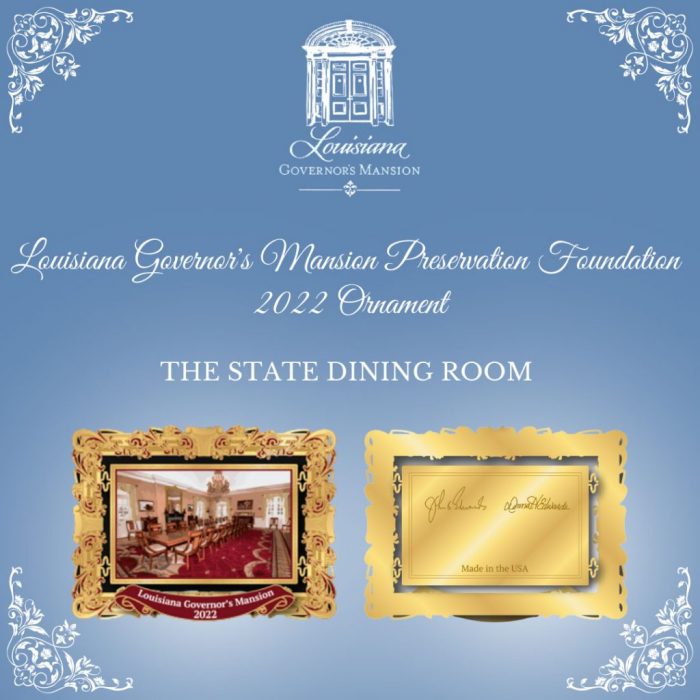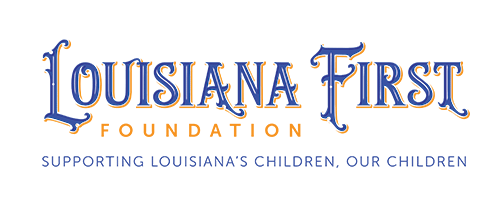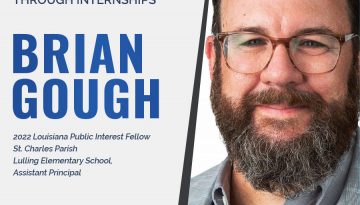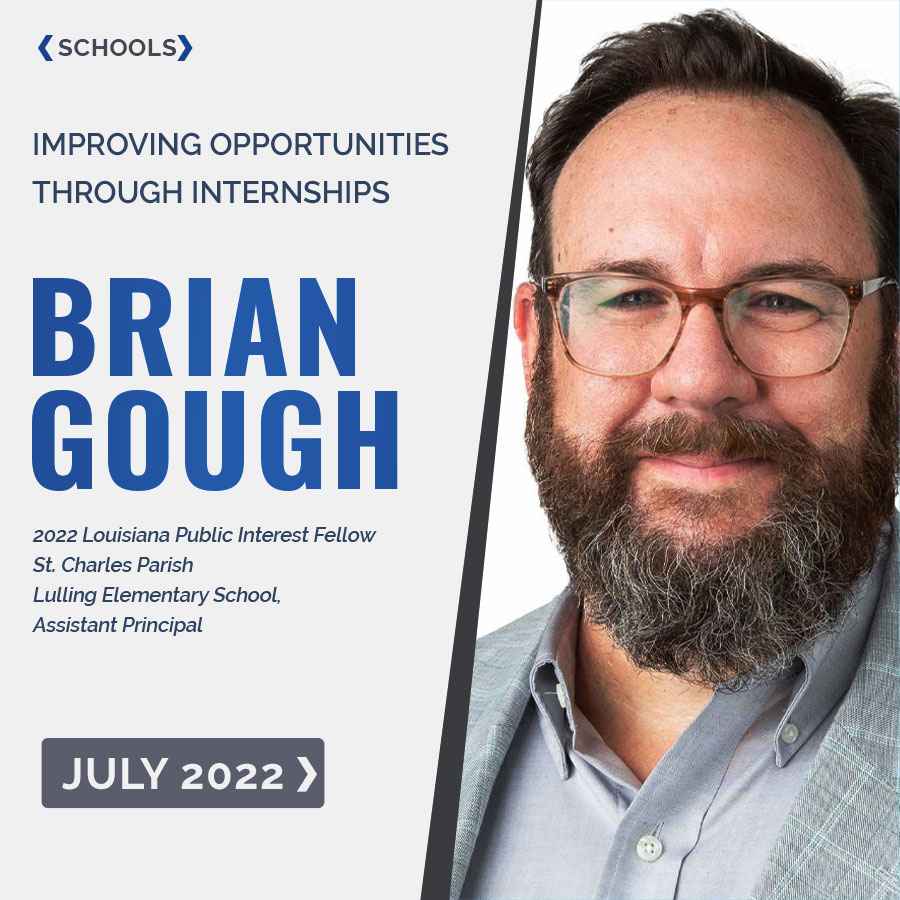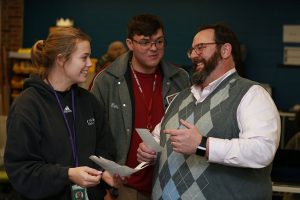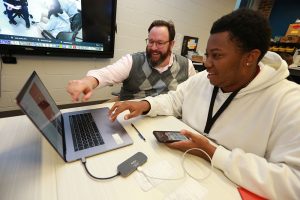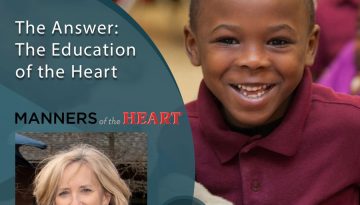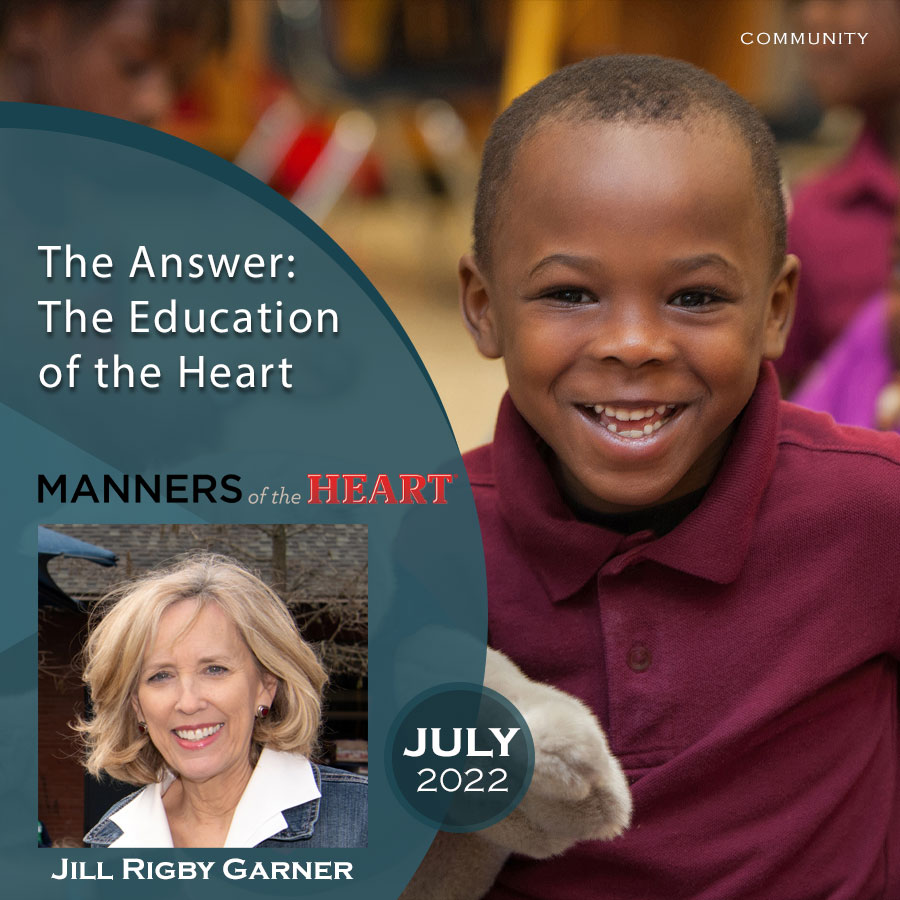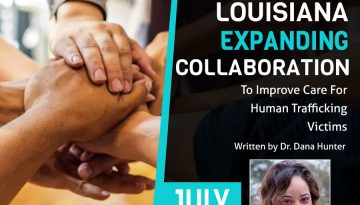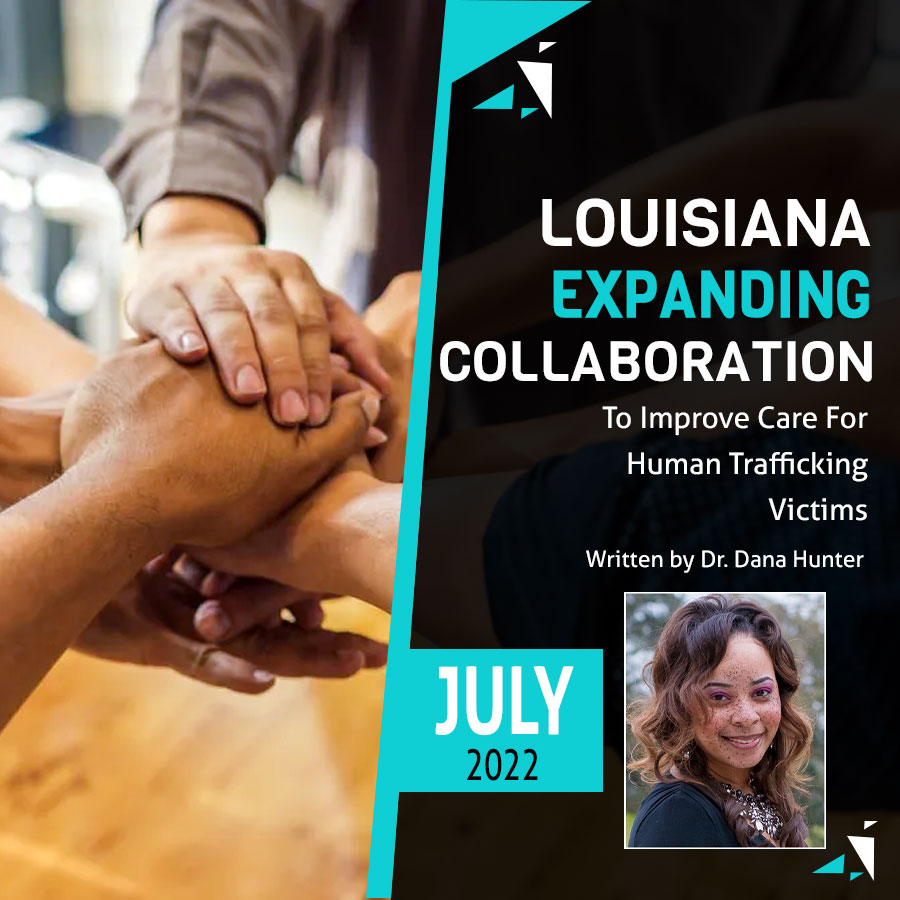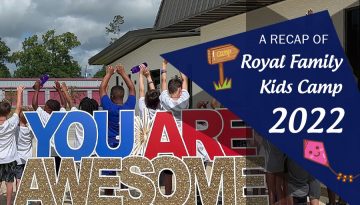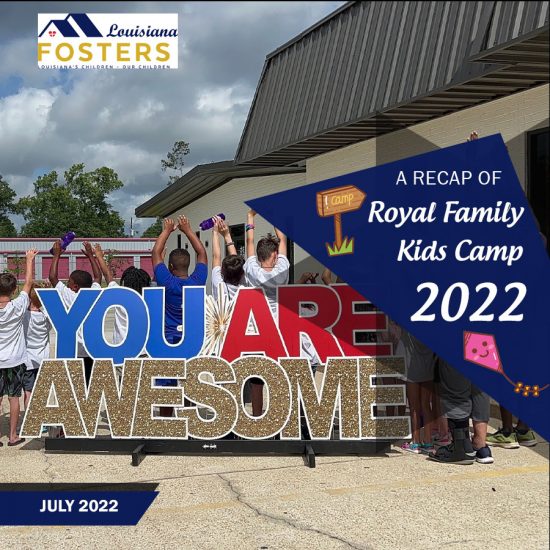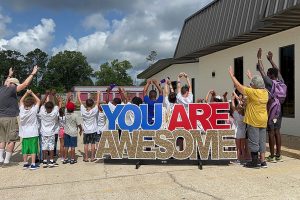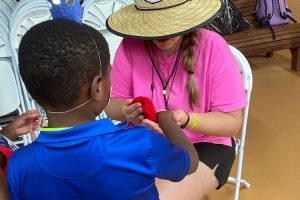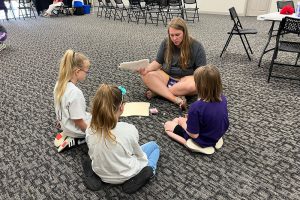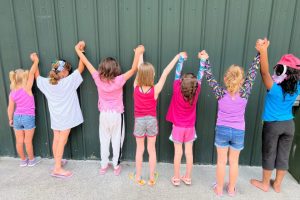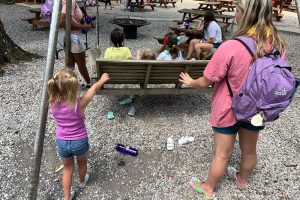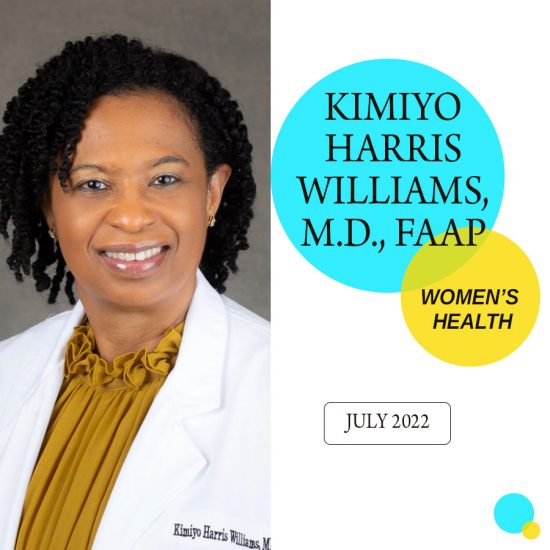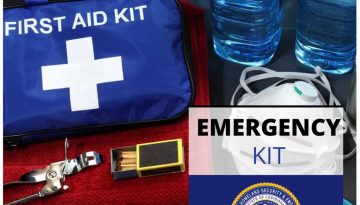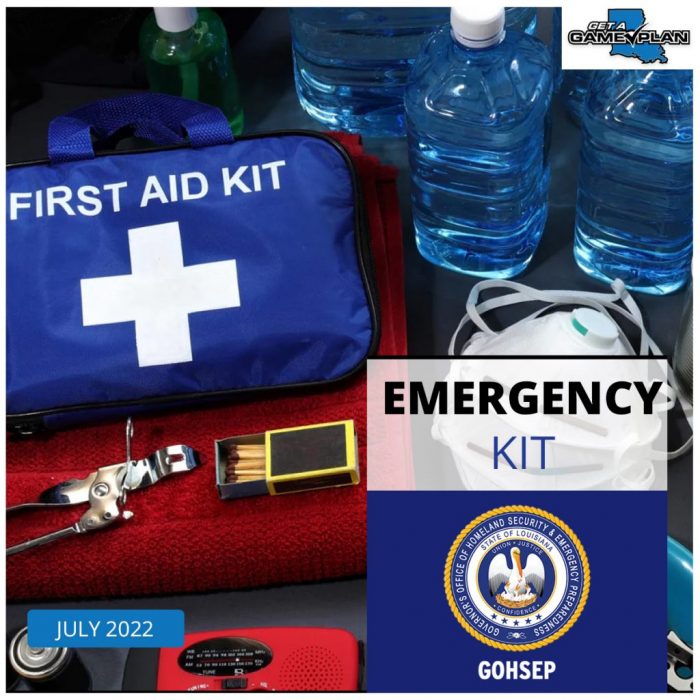Fifth graders know so much more than we do as adults, no matter how knowledgeable we believe we have become. A commencement address delivered for graduating fifth graders a few years ago proved this to be a true statement.
These young graduates were Manners of the Heart kids who had been taught the principles of others-centeredness, esteeming others before self, and humble confidence since first grade.
The day’s speaker drew a diagram of a StrongHeart character on a whiteboard. The students were asked to name the heart attributes of a StrongHeart. They shouted, “Love, respect, obedience, compassion,” and on and on. The speaker wrote their answers in the character’s heart. The heart became filled with life-giving qualities.
The students were then asked to share scenarios in which their participation might damage their strong hearts as middle-schoolers. They rattled off real-life answers: “lying,” “fighting,” “sex,” and “cheating.”
“Let’s take a look at what takes place in your heart as you answer those invitations,” the speaker replied.
“If you say ‘yes,’ when you should say ‘no,’ you’ll break a piece of your heart,” she said as she erased a section of the heart outline. “Do it again, and you’ll break another piece of your heart,” she continued, erasing another piece of the heart and then another until she made it through their scenarios. By the end, the protective wall of the once StrongHeart had been completely worn down.
“Before you realize what’s happening to you, your heart will begin to fall apart. If your strong heart weakens, what will happen to the good stuff in it?” she quizzed.
Multiple voices shouted, “Bad stuff gets in.”
“That’s right!” she exclaimed with utter delight (for every Manners of the Heart kid learns—you take the bad stuff out and put the good things in, and if the good stuff falls out, the bad stuff gets in!).
As the speaker turned back to the StrongHeart character, she asked the students, “What happens to the love in StrongHeart’s heart?” The students came back with, “It turns to hate.” She replaced the word “Love” with “Hate.”
“What happens to the respect?” she asked. “It becomes disrespect,” they replied. She made the change. “Obedience” becomes “disobedience,” and on and on.
When the exercise was completed, StrongHeart had nothing good left in his heart. “Who has StrongHeart become?” she asked.
Without hesitation, a typically timid girl whispered under her breath, “Depressed.” A young man shouted from the back, “He’s a murderer.” His profound answer stunned everyone in the auditorium. The depth of his understanding was astonishing.
Other children called out, “Mean. Scary. Sad.”
Then, the speaker asked the really tough question, “Who broke the heart of StrongHeart?”
There was a long silence until one young man bravely raised his hand and said, “He did.”
“Yeah,” from down the row. “I did too.”
“Me, too,” nodded one of the girls.
“You’re right…you break your own heart when you make the wrong choices. I break my heart when I make wrong decisions,” she affirmed. “When we allow the bad stuff to take over, look what happens…we lose our StrongHearts.”
“And we have no one to blame but ourselves. But, there’s good news…YOU know who can fix it,” the speaker emphasized with a fist pump over her heart.
“He can!” said one. “I can!” said another. “We can fix our hearts,” the rest joined in agreement. As they talked of correcting mistakes and making the right choices, the StrongHeart became filled once again with the good stuff. With each right decision, the speaker traced the wall of his heart repeatedly until they had created an impenetrable barrier around the good contents.
They got it.
As a result of their Heart Education, these Manners of the Heart students were fully capable of accepting responsibility and accountability for their choices as upcoming middle-schoolers. Through this activity, they exhibited an understanding that the attitudes behind their actions are formulated in their hearts. They demonstrated how their hearts’ content determines what they will say and do.
This was not mindfulness; it was heart-to-mind communication.
Medical researchers confirm the heart informs the brain, not the other way around.
Research from Drs John and Beatrice Lacey that began in the 1960s is resurfacing today in neurocardiology, the study of the heart and brain. Dr. M. A. Armour asserted in his ground-breaking book, Neurocardiology,
These scientific advances illuminate the fact that while we may believe the brain is our decision-maker and ruler, the heart is more powerful than we ever imagined—functioning as a sensory organ, hormone-producing gland, and information-processing center.
The Heart Speaks by Dr. Mimi Guarneri, medical director of the Scripps Center for Integrative Medicine, states:
Each heartbeat sends complex signals to the brain and other organs. These heart signals can reach higher brain centers, ultimately affecting our reasons, choices, emotions, and perceptions. The heart has not only its own language but its own mind.
We have failed this generation because we neglected the education of their hearts in favor of filling their minds with facts, figures, and falsehoods. Instruction that has led to confusion, anxiety, depression, chaos, and the loss of life.
We must strengthen and preserve the next generation’s hearts to save them from the pain of the current generation. The answer is only found in the education of the heart.
Jill Rigby Garner is the founder of Manners of the Heart, a nonprofit organization based in Baton Rouge. Manners of the Heart’s elementary school curriculum has reached schools and parents from Baton Rouge to Kampala, Uganda.
For more information, visit: https://mannersoftheheart.org/
